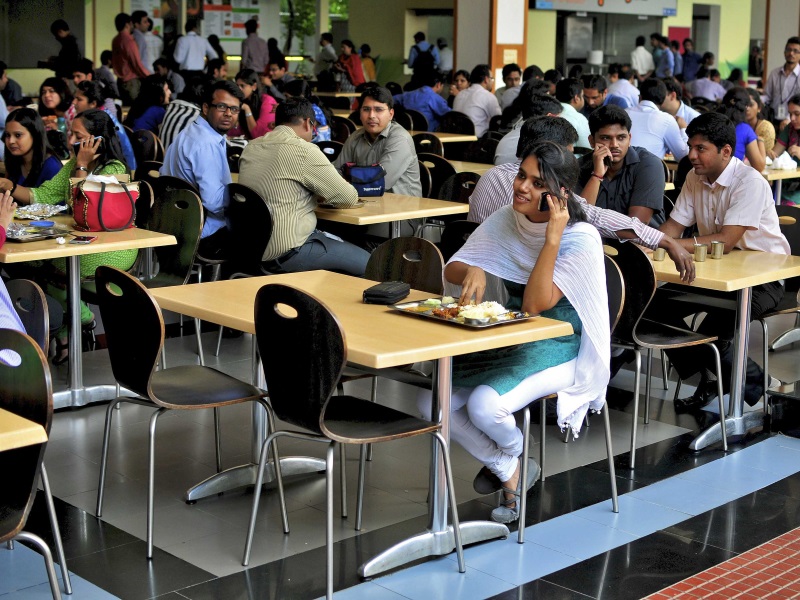- Home
- Internet
- Internet News
- Digital Technology Benefits Distributed Unevenly: World Bank
Digital Technology Benefits Distributed Unevenly: World Bank

"Greater efforts must be made by countries across the world to connect more people to the Internet to create an environment that unleashes the benefits of digital technologies for everyone," said the World Development Report 2016: Digital Dividends.
"India's Aadhaar programme is today a model for many countries and recent initiatives like Digital India has the potential to generate greater digital dividends among all sections of its society," said World Bank country director Onno Ruhl at the launch.
"However, to reap the full benefits, affordable and wider access to the Internet and skills that enable all workers to leverage the digital economy will be required," he added.
India has the third highest number of Internet users by absolute numbers, behind China and the US. However, it had around 200 million Internet users, compared with 665 million in China at the end of 2014, as per the World Bank's metrics of connectivity.
Moreover, adoption of digital technologies shows great variation within India, the World Bank said.
"Very high for government and relatively low for businesses, especially among small and medium enterprises," it said with respect to India.
The cost of residential broadband service in India is six to ten times more expensive than in China.
Making the Internet accessible, open and safe for all Indians must be a priority and is vital to close the digital divide, the report said.
Apart from increasing access, the report calls upon countries, including India, to seize the gains of information technology by strengthening "analog foundations of their digital economy".
These analog foundations consist in strengthening regulations that ensure competition among businesses, by adapting workers' skills to the demands of the new economy, and by ensuring that government institutions are accountable.
Technology without a strong foundation risks creating divergent economic fortunes, higher inequality and an intrusive state, the report said.
In this connection, the World Bank said: "A poor business climate and vested interests often hold back digital adoption. Among online firms, the economics of the Internet may enable natural monopolies to exploit their dominant position, hurting consumers and suppliers."
The report concludes that the benefit of digital dividends are being challenged by new risks like harmful concentration of market power inhibiting competition and innovation, and automation driven inequality.
Moreover, without the proper accountability, governments can leverage digital technologies to exercise greater control over their citizens, rather than to empower them.
Get your daily dose of tech news, reviews, and insights, in under 80 characters on Gadgets 360 Turbo. Connect with fellow tech lovers on our Forum. Follow us on X, Facebook, WhatsApp, Threads and Google News for instant updates. Catch all the action on our YouTube channel.
Related Stories
- Samsung Galaxy Unpacked 2025
- ChatGPT
- Redmi Note 14 Pro+
- iPhone 16
- Apple Vision Pro
- Oneplus 12
- OnePlus Nord CE 3 Lite 5G
- iPhone 13
- Xiaomi 14 Pro
- Oppo Find N3
- Tecno Spark Go (2023)
- Realme V30
- Best Phones Under 25000
- Samsung Galaxy S24 Series
- Cryptocurrency
- iQoo 12
- Samsung Galaxy S24 Ultra
- Giottus
- Samsung Galaxy Z Flip 5
- Apple 'Scary Fast'
- Housefull 5
- GoPro Hero 12 Black Review
- Invincible Season 2
- JioGlass
- HD Ready TV
- Laptop Under 50000
- Smartwatch Under 10000
- Latest Mobile Phones
- Compare Phones
- OPPO A6v 5G
- OPPO A6i+ 5G
- Realme 16 5G
- Redmi Turbo 5
- Redmi Turbo 5 Max
- Moto G77
- Moto G67
- Realme P4 Power 5G
- HP HyperX Omen 15
- Acer Chromebook 311 (2026)
- Lenovo Idea Tab Plus
- Realme Pad 3
- HMD Watch P1
- HMD Watch X1
- Haier H5E Series
- Acerpure Nitro Z Series 100-inch QLED TV
- Asus ROG Ally
- Nintendo Switch Lite
- Haier 1.6 Ton 5 Star Inverter Split AC (HSU19G-MZAID5BN-INV)
- Haier 1.6 Ton 5 Star Inverter Split AC (HSU19G-MZAIM5BN-INV)
-
 Scientists Discover Cosmic Clock in Zircon Crystals That Tracks Earth’s Landscape History
Scientists Discover Cosmic Clock in Zircon Crystals That Tracks Earth’s Landscape History
-
 NASA Confirms Axiom Mission 5 Private Astronaut Launch to ISS in Early 2027
NASA Confirms Axiom Mission 5 Private Astronaut Launch to ISS in Early 2027
-
 Mountain Climbing Indie Game Cairn Sells 200,000 Copies on PC, PS5 in 3 Days
Mountain Climbing Indie Game Cairn Sells 200,000 Copies on PC, PS5 in 3 Days
-
 Sony WF-1000XM6 Price, Launch Timeline and Key Specifications Leaked
Sony WF-1000XM6 Price, Launch Timeline and Key Specifications Leaked











